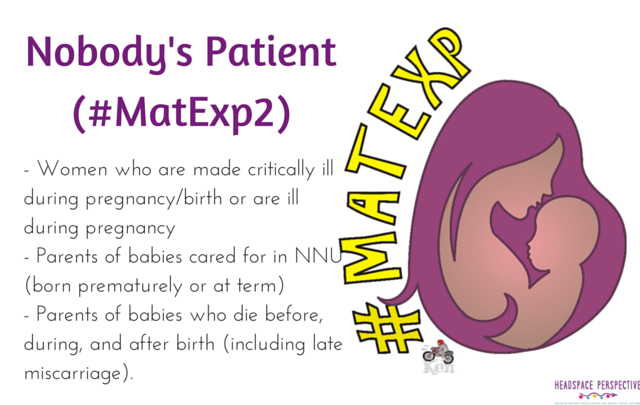Who is involved?
This project is focusing on Kingston Hospital and St George’s Hospital as pilot sites with the support of Consultant Obstetrician Florence Wilcock; Research Midwife Sam Frewin; Whose Shoes creator Gill Phillips; and Patient Leader Leigh Kendall.
Leigh and her son Hugo were patients at St George’s in February/March 2014. Hugo was born at 24+4 because she had severe preeclampsia and HELLP syndrome. Everything possible clinically was done to save Leigh’s life, and to give Hugo the best possible chance. Sadly, Hugo died when he was 35 days old. Her own experiences – namely difficulties in the SGH ITU, and communication issues between the postnatal ward and NNU are the inspiration for the project.
About the project
The project is one of three that received funding as part of NHS England’s #MatExp Challenge Fund which was formed in response to the National Maternity Review report as a method of implementing innovative patient experience improvements from groups of maternity service users who are seldom heard.
The focus of ‘Nobody’s Patient’ is:
- Women who are made critically ill by pregnancy or who are ill during pregnancy (eg with cancer);
- Parents of babies who are born in the NNU (whether born prematurely or unwell at term);
- Parents of babies die before, during, or after birth (including late miscarriage).
There is currently a gap in provision for these women and their families in terms of the care services provide, creating issues with clinical effectiveness, safety, and quality of care.
These families are also limited in the opportunities offered to feedback their experiences, sometimes even being excluded from more traditional methods of feedback such as surveys which often adds additional stress and upset to what is already an emotionally challenging time. It is therefore difficult for services to understand what they are doing well and where improvements can be made in caring for these families.
Activity/Outcomes/Outputs
Nobody’s Patient is using a similar model to that utilised by the London Maternity Strategic Clinical Network in 2013 for five pilot user experience #MatExp workshops in response to poor CQC maternity survey results. The workshops, based on the Whose Shoes?® concept, were hugely successful and the outputs formed the basis of the London SCN Maternity Experience toolkit, which includes exemplars of good practice implemented by pilot sites as a result of the workshops.
This project will build on the foundations of the original initiative focusing on the co-production of bespoke Whose Shoes?® user experience workshops scenarios based on and involving the experiences of families in the sensitive ‘seldom heard’ mentioned above.
The needs of these groups are specific and very different to families who have a healthy pregnancy and birth. Therefore, they require discrete consideration to ensure their needs are met. These groups currently fall through gaps in both service provision and traditional feedback methods. Qualitative and anecdotal evidence reveals that these families’ experience of care varies wildly: there is little coordination between departments and specialties, leading to issues with safety, clinical effectiveness, and quality care.
The aim of our project as with the existing #MatExp Whose Shoes?® approach will be to design and develop content that will enable service users and health care providers to discuss local successes and challenges in an equal and respectful way directly leading to collaborative improvement work.
The previous #MatExp Whose Shoes?® approach has a proven track record of action directly as a result of completion of workshop pledges as well as having built considerable momentum on line and on social media sharing those ideas.
A huge benefit of the Whose Shoes?® approach is that it uses real-life scenarios to get workshop participants thinking. We are collecting real-life scenarios from families in the three patient groups, sourcing them from complaints to Kingston and SGH, as well as through social media.
Outputs from the project will include:
· Production of a ‘best practice’ guide (similar in format to the original pilots’ ‘Best Practice Case Studies’) about modifying the original workshop format to ensure it is a suitable environment for discussion of such sensitive topics, including having difficult conversations.
· Hard copies of the guide will be printed, and also be hosted online on the SCN website alongside the original toolkit.
How Can You Help?
- Share information about the project to raise awareness
- Submit a scenario – we’re looking for experiences from staff and patients/parents/families – more information

